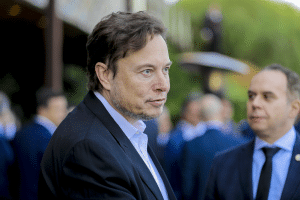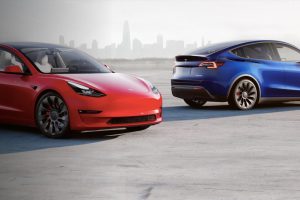- 🚗 Phase-Out Decision: BYD plans to phase out pouch-type batteries in its best-selling hybrids.
- ⚠️ Durability Concerns: The decision is reportedly influenced by concerns over potential durability issues and the risk of leaks associated with pouch-style batteries.
- 🏭 Production Line Conversion: BYD has begun converting production lines for pouch-type cells to prismatic cells at its Shaanxi and Zhejiang factories.
- 🔧 Factory Shift: The third battery factory in Qinghai will continue making pouch cells for hybrid production but is expected to shift to prismatic batteries by early 2025.
- 🔋 Replacement Battery: BYD’s planned replacement for pouch-style batteries is a prismatic battery named “Short Blade,” which utilizes stacked foils similar to the Blade Battery used in BYD’s electric vehicles but is shorter in length.
- 🌐 Global Sales Snapshot: Hybrids accounted for nearly half of BYD’s global sales in 2023, with 98% of hybrid sales in China.
- 🔍 Risk of Leaks: Concerns about potential electrolyte leaks with pouch batteries, which could pose a risk of fires, have been raised by BYD and industry experts.
- 🚨 Industry Concerns: Other EV makers like Volkswagen and Tesla have also expressed concerns about pouch-type batteries in the past.
- 🔄 Volkswagen’s Move: In 2021, Volkswagen announced a move away from pouch batteries due to concerns.
- 🔥 Tesla’s Stance: Tesla CEO Elon Musk has strongly recommended against the use of pouch-style batteries, citing the probability of dangerously high battery temperatures.
- 🛑 Recall History: BYD initiated a recall of over 60,000 Tang DM-i hybrid vehicles in 2022 due to a defect in the vehicles’ pouch-style battery, increasing the risk of thermal runaway.
Electric vehicle (EV) manufacturer BYD is making waves in the industry with its recent decision to phase out pouch-type batteries used in its best-selling hybrids. This strategic move is fueled by concerns over durability and the potential risk of leaks associated with this battery technology.
Understanding the Phase-Out Decision
BYD’s decision to transition away from pouch-type batteries is a significant development, signaling a shift in focus towards alternative and potentially safer battery designs. Pouch batteries have been a common choice in the EV industry, but concerns about their long-term performance and safety have prompted BYD to explore other options.
Addressing Durability Concerns
Durability is a paramount factor in the EV landscape, and BYD’s decision reflects a proactive approach to address potential issues. The industry has witnessed growing concerns about the longevity of pouch batteries, and BYD’s move indicates a commitment to ensuring the reliability of its hybrid vehicles.
Production Line Conversion: A Strategic Maneuver
To implement the phase-out, BYD has initiated the conversion of production lines at its Shaanxi and Zhejiang factories. This strategic maneuver involves transitioning from pouch-type cells to prismatic cells. The goal is to optimize production processes, enhance efficiency, and align with the evolving landscape of battery technologies.
The Role of the “Short Blade” Battery
BYD’s planned replacement for pouch-type batteries is the “Short Blade” prismatic battery. This innovative solution incorporates stacked foils, similar to the Blade Battery used in BYD’s electric vehicles. The “Short Blade” is designed to offer improved performance while addressing the concerns associated with pouch-type batteries.
Global Sales Snapshot and Market Trends
A glance at BYD’s global sales in 2023 reveals that hybrids accounted for nearly half of the company’s total sales. Notably, 98% of hybrid vehicle sales occurred in China. This snapshot underscores the significance of BYD’s strategic decisions within its largest market and the global automotive landscape.
Managing the Risk of Leaks
One of the critical concerns associated with pouch batteries is the potential risk of electrolyte leaks, which could lead to fires. BYD, along with industry experts, has taken a cautious stance, emphasizing the importance of mitigating this risk. The shift to prismatic batteries aligns with a broader industry effort to enhance safety standards.
Industry-Wide Concerns and Precedents
BYD is not alone in expressing concerns about pouch-type batteries. Major players like Volkswagen and Tesla have previously highlighted issues with this battery technology. In 2021, Volkswagen announced a strategic move away from pouch batteries, showcasing a shared industry awareness of the need for alternative solutions.
Tesla’s Stance: A Cautionary Note
Tesla CEO Elon Musk has been vocal about his reservations regarding pouch-style batteries. Musk has strongly recommended against their use, citing the potential for dangerously high battery temperatures. BYD’s decision aligns with this cautionary note, indicating a collective industry acknowledgment of safety considerations.
Recall History: Learning from Challenges
BYD’s recall of over 60,000 Tang DM-i hybrid vehicles in 2022 due to a defect in pouch-style batteries serves as a learning experience. This incident highlights the importance of proactive measures to address potential issues, ensuring the safety and satisfaction of customers.
Conclusion: Navigating the Future of EV Batteries
BYD’s strategic move to phase out pouch-type batteries is a testament to the dynamism of the EV industry. As the quest for safer, more durable, and efficient battery technologies continues, this decision sets a precedent for other manufacturers to reevaluate their battery choices.
In navigating the future of EV batteries, the industry must strike a balance between innovation, safety, and environmental sustainability. BYD’s shift towards prismatic batteries exemplifies a commitment to meeting evolving standards and consumer expectations.





